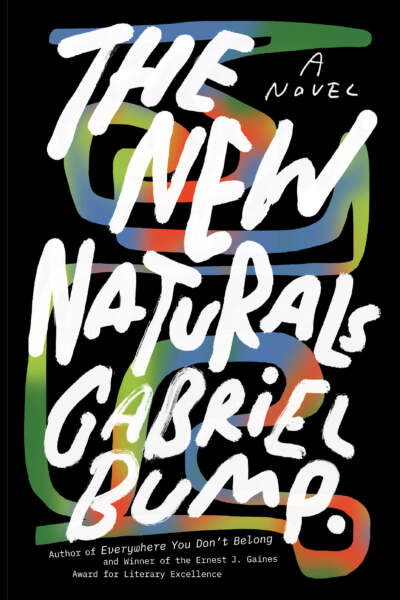Advertisement
Review
Gabriel Bump's 'The New Naturals' is a tale of utopia gone awry

In his biting survey of 19th-century fads and fanaticism, critic Gilbert Seldes aptly summed up the irresistible force that led droves of otherwise sensible Americans to abandon mainstream society and join unusual, naive, and sometimes downright hare-brained utopian schemes such as the Oneida Community, Bronson Alcott’s Fruitlands, and the Owenites. “They were all concerned with the same thing,” wrote Seldes. “Salvation.” Amid the tumult of their times, “they looked for some end to earthly sorrows, to some perfection which could atone for our imperfect life on earth,” he wrote in “The Stammering Century.”
The imperfections of the present are rendered in high relief at the outset of Gabriel Bump’s latest novel, “The New Naturals,” and they similarly impel the book’s protagonists to cut ties with civilization in the hopes of crafting something better. Bump’s award-winning debut, 2020’s “Everywhere You Don’t Belong,” was a moving story about a young Black man growing up on the South Side of Chicago, where Bump himself hails from; here, he takes a very different approach, offering up a high-concept narrative that asks readers to put aside their critical faculties and just go with it, in the hopes that his talents as a deft character portraitist will compensate for the shambolic nature of book’s central premise.

Fires, despair, racism, and oppression. This is what Rio and her husband Gibraltar read about in the news every day. Unfulfilled in their jobs as professors who “teach Black people to white children'' at a progressive school in Boston, Gibraltar takes to doomscrolling conspiracy accounts on Twitter while Rio spends her time marking a large wall map with red X’s to denote the sites of the latest horrors:
“Somewhere in New York City, a young Black woman was abducted by police and sold into sex slavery. Somewhere in Atlanta, a young Black man was mistaken for a thief and shot by a grocery store owner. Down in Memphis, schools closed and children sat on slanted stoops all day, stared into their potholed street, saw time pass like violent rapids.”
Exhausted and afraid, they go off the grid and flee to western Massachusetts — but changing scenery can’t stop tragedy from hitting home. When their infant daughter, Drop, dies suddenly, the pair hatch a quixotic plan: build a bunker underneath a mountain and start a new, better society, away from the evils of the world. It’s a tall order for two lapsed academics, but after a few well-placed calls and a couple of convenient plot developments, they manage to capture the attention of an unnamed billionaire benefactor who agrees to fund their project.
Their vision is to create something like a co-op or commune where people can study Irish modernism and watch Spike Lee films while on break from the essential tasks of running an autonomous community. Apart from being underground, it sounds like a nice hang — but a shaky foundation for a new society. Still, they manage to attract people from all walks of life who are seeking purpose and security.
Advertisement
Just when the excavators begin digging and things start to get interesting, Bump leaves Rio, Gibraltar, and their bunker behind in favor of two pairs of wanderers: Elting and Buchanan, two homeless men who hear about the new utopia through a whisper network aimed at recruiting new members; and Sojourner and Bounce, an ex-journalist and a depressed former athlete who eventually stumble upon it by accident. By the time we return to the bunker late in the narrative, conditions have deteriorated significantly. After two years of support, the benefactor has pulled her funding, and Rio and Gibraltar have had to resort to radical, even violent measures to keep things from collapsing.
In a recent interview with Publishers Weekly, Bump describes his book as a “big clump of nebulous threads.” This is about as succinct and honest a description of “The New Naturals” as I can imagine. The seams where those threads are pulled together are both obvious and strained; the book really feels like six characters desperately searching not for salvation, but for a good reason to all be in the same story together.
Ironically, it’s when they’re furthest apart that the characters have the room to breathe and really shine, showing off Bump’s skills with characterization and dialogue. I would’ve gladly spent more time with Bounce and his family — this section really sings; his malaise is palpable, compelling, and richly rendered. It feels, in all honesty, like an excerpt from another book. When Bounce leaves for western Massachusetts, he mostly leaves behind what makes him interesting.
“A song played in Bounce’s head as he walked up the stairs, three by three… Of course, the song was about love and trying and giving up and trying again and dying alone and trying again in some afterlife. It was a long song he couldn’t remember in full… Still, Bounce rode that melody two by two, three by three when he got going.”
The book’s conclusion offers up a grab bag of choose-your-own-takeaway codas: were Rio and Gibraltar foolhardy or noble? Was it the idea that was flawed or the execution? Could it ever be different? Is the only thing that matters that we never stop trying? With “The New Naturals,” Bump aims to show the extreme lengths people will go to in order to give their lives meaning in the face of relentless, seemingly inescapable adversity. What he reveals is that, even in fiction, meaning isn’t always easy to find.
